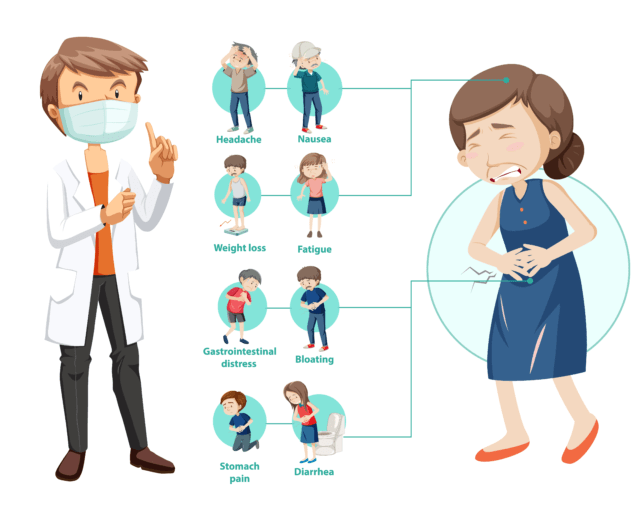A Guide to Recognising Symptoms That Need Medical Attention
Our bodies are remarkably resilient, often managing minor illnesses or discomforts without much intervention. However, certain symptoms should never be ignored, as they may indicate underlying conditions requiring immediate attention. Knowing when to consult your GP is crucial for maintaining your health and well-being. In this article, we highlight common signs that warrant a visit to your GP.
Unexplained and Persistent Symptoms
Some symptoms might appear minor at first but become concerning if they persist over time. These include:
- Unexplained fatigue: Ongoing tiredness that doesn’t improve with rest could signal conditions such as anaemia, thyroid disorders, or even depression.
- Weight changes: Significant weight loss or gain without changes to your diet or activity level may point to hormonal imbalances, digestive disorders, or other health issues.

Pain That Won’t Go Away
Pain is your body’s way of signalling that something isn’t right. It’s important to seek medical advice for:
- Severe headaches: Particularly if they are sudden, accompanied by vision changes, or occur after a head injury.
- Chest pain: This could indicate heart-related issues or respiratory conditions and should always be taken seriously.
- Persistent abdominal pain: This might be a sign of appendicitis, gallstones, or gastrointestinal problems.
Changes in Normal Body Functions
Sudden or unexplained changes in bodily functions should not be overlooked, including:
- Difficulty breathing: Shortness of breath could indicate asthma, infections, or even heart problems.
- Bowel or urinary changes: Blood in your stool, prolonged diarrhoea, or changes in urination frequency could signal infections or digestive issues.
- Lumps or swelling: Unexplained lumps should always be checked to rule out infections, cysts, or other conditions.
Mental Health Concerns
Mental health is just as vital as physical health. Consider visiting your GP if you experience:
- Persistent low mood or anxiety: These feelings may interfere with daily life and could benefit from professional support.
- Difficulty coping with stress: Changes in behaviour, trouble sleeping, irritability, or withdrawal from social activities are signs that you may need help.
Skin and Vision Changes
Visible changes can often be indicators of underlying health issues:
- Moles or skin changes: New or changing moles, particularly asymmetrical ones, should be examined to rule out skin conditions such as melanoma.
- Vision problems: Sudden vision loss, double vision, or blurry sight could indicate neurological or vascular issues requiring urgent care.
Fever and Recurring Infections
A fever that doesn’t resolve or is accompanied by severe symptoms like rash, neck stiffness, or confusion should prompt a GP visit. Additionally, recurring infections could suggest an underlying immune system problem.
When to Seek Immediate Medical Attention
Certain symptoms require urgent attention and may not wait for a GP appointment. Call emergency services if you or someone you know experiences:
- Signs of a heart attack: Chest pain, shortness of breath, or dizziness.
- Stroke symptoms: Sudden weakness on one side of the body, facial drooping, or slurred speech.
- Severe allergic reactions: Swelling of the face or throat, difficulty breathing, or widespread rash.

Source: Freepik
The Role of Your GP
GPs are trained to diagnose and manage a wide range of medical issues. Whether you’re dealing with minor ailments or serious health concerns, they can provide treatment and refer you to specialists if needed. Regular check-ups with your GP are also key to detecting potential problems early, enabling a proactive approach to your health.
Take Action Today
If you are experiencing any of the symptoms mentioned or have concerns about your health, don’t hesitate to contact Vilafortuny GP. Early diagnosis and treatment can make all the difference in ensuring your well-being.


